Blog Posts Tagged AC/DC Module
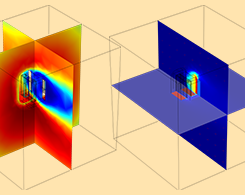
Designing Inductors with a Simulation App at Bombardier Transportation
Every day, 500 million passengers in 200 cities and 60 countries ride a train featuring Bombardier Transportation products. See how apps help speed up the design process for a train component…

Computational Electromagnetics Modeling: Which Module to Use?
If you work with a particular electromagnetic device or application area, you might be wondering which module in the COMSOL product suite is right for you. Keep reading for a comprehensive intro.
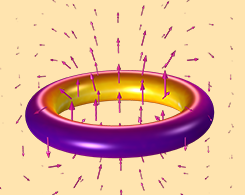
Course: Modeling Electromagnetic Coils in COMSOL®
Get an overview of our Learning Center course on modeling coils using COMSOL Multiphysics and the AC/DC Module, from setting up a coil model to analyzing electromagnetic heating and more.
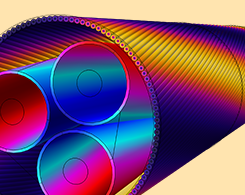
Using 3D Models to Investigate Inductive Effects in a Submarine Cable
It takes a modern desktop computer ~30 minutes to compute a 3D cable model with twisted magnetic armor. Consequently, 3D cable models are replacing empirical models in the power cable industry.
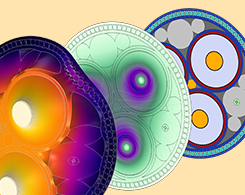
Modeling Cables in COMSOL Multiphysics®: 8-Part Tutorial Series
Your roadmap to modeling cables with the AC/DC Module and COMSOL Multiphysics®: An 8-part tutorial series that starts with the basics and gradually adds complexity and multiple physics.
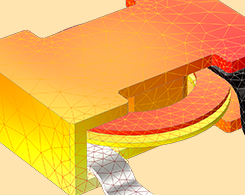
How Do I Use Gauge Fixing in COMSOL Multiphysics®?
Here’s your guide to using gauge fixing in your electromagnetics simulations in COMSOL Multiphysics®, from determining if it is necessary to imposing current conservation.
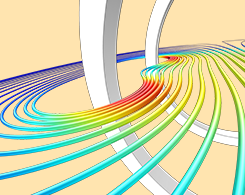
What Is Gauge Fixing? A Theoretical Introduction
Investigate the consequences of Helmholtz’s theorem when applied to Maxwell’s equations, and when using scalar and vector potentials to represent physical fields.
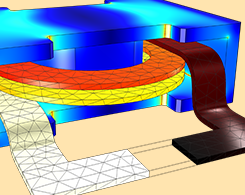
Which Study Type Should I Use for My Electrothermal Analysis?
What’s the best interface to use when implementing electrothermal analyses in COMSOL Multiphysics? We go over the interfaces, study types, and multiphysics couplings for high and low frequencies.
